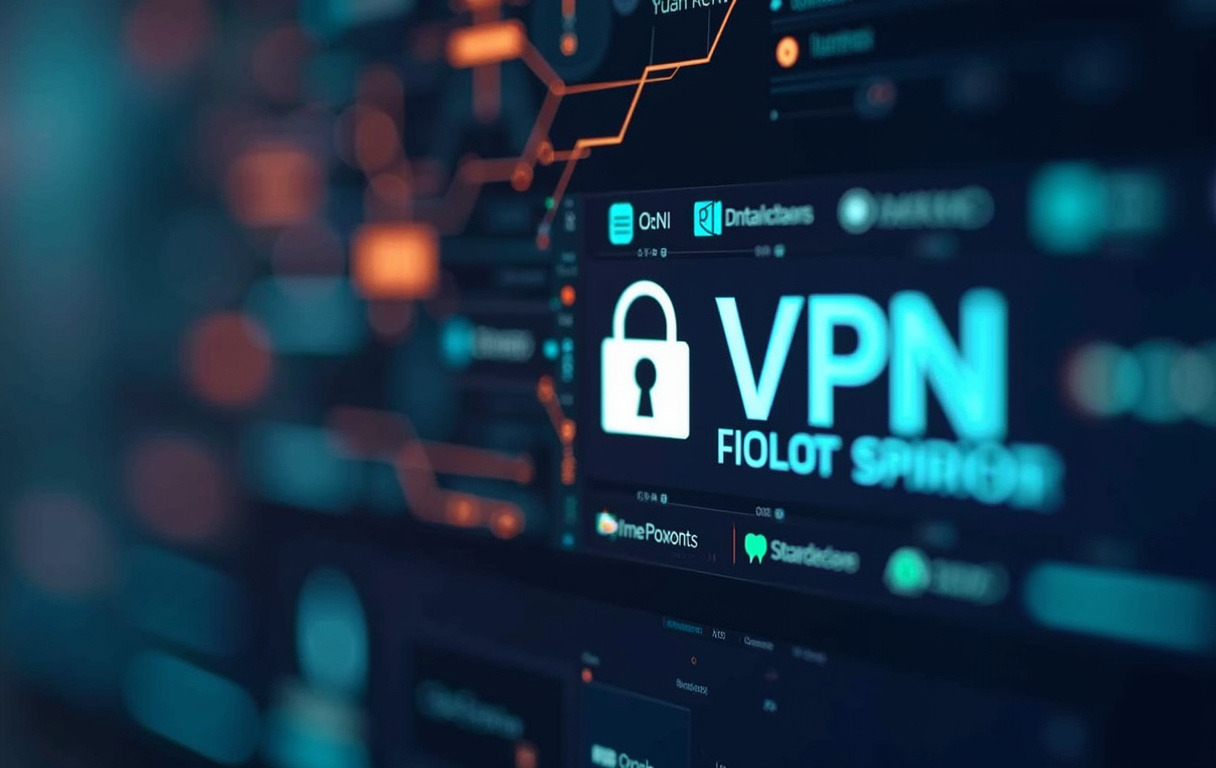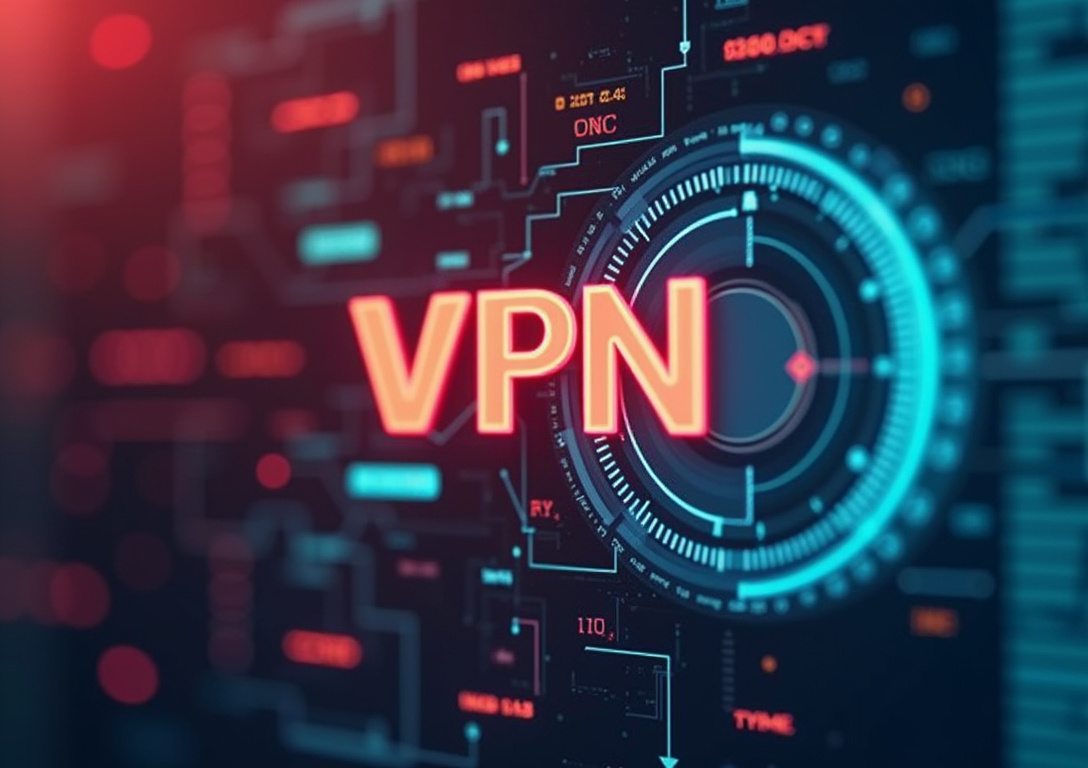Exploring Cross-Border VPN Privacy Laws

Table of Contents
- Paragraph 1: Navigating the Labyrinth: An Introduction to Cross-Border VPN Privacy Laws
- Paragraph 2: The Fragmented Landscape: A Patchwork of Conflicting Privacy Laws
- Paragraph 3: The Imperative of VPN Compliance: Navigating Legal Obligations and User Expectations
- Paragraph 4: Examining Services: Comparing VPNs in the Context of Varied Legal Landscapes
- Paragraph 5: The Future of Cross-Border VPN Privacy: Evolving International Regulations and User Empowerment
Paragraph 1: Navigating the Labyrinth: An Introduction to Cross-Border VPN Privacy Laws
The internet, envisioned as a borderless realm of information and communication, has ironically become subject to the geographical constraints of national laws and regulations. This is particularly evident in the realm of online privacy, where the tools designed to protect user data, such as Virtual Private Networks (VPNs), are entangled in a complex web of cross-border legal considerations. This article embarks on a journey to unravel the intricacies of cross-border VPN privacy laws, shedding light on the challenges and obligations faced by both VPN providers and users.
We will delve into the multifaceted nature of legal complexity, dissecting how varying national laws, international agreements, and enforcement mechanisms shape the privacy landscape for VPN services operating across borders. Understanding these nuances is crucial for anyone seeking to utilize VPNs effectively and legally, ensuring that their pursuit of online privacy doesn't inadvertently lead to legal complications. The initial promise of VPNs was straightforward: to create a secure tunnel for data transmission, shielding users from surveillance and enabling access to geographically restricted content.
However, the reality is far more nuanced. When a user connects to a VPN server in a different country, their online activities become subject to the laws of that jurisdiction. This principle of jurisdictional reach is at the heart of the cross-border VPN privacy challenge.
Imagine a journalist in a country with strict censorship laws using a VPN to access and report on sensitive information. If that journalist connects to a server located in a country with weaker protections for journalistic freedom or a history of cooperating with oppressive regimes, their anonymity and safety could be compromised. Adding to this complexity is the fact that different countries have vastly different interpretations of what constitutes "privacy" and how it should be protected.
Some nations prioritize national security, granting broad powers to intelligence agencies to monitor online communications. Others emphasize individual rights, enshrining strong data protection laws in their constitutions or statutes. The European Union's General Data Protection Regulation (GDPR) stands as a prime example of the latter, imposing stringent requirements on organizations processing the personal data of EU residents, regardless of where those organizations are located.
This means that even a VPN provider based outside the EU must comply with GDPR if it handles the data of EU citizens, facing hefty fines for non-compliance. The legal framework surrounding VPNs is further complicated by the existence of international agreements and collaborations. Intelligence-sharing alliances, such as the "Fourteen Eyes," facilitate the exchange of data between member countries, potentially circumventing the privacy protections offered by VPNs.
A VPN provider operating in a member country might be compelled to share user data with other member states, even if those states have weaker privacy laws. This highlights the importance of understanding the geopolitical landscape and the potential for data sharing when selecting a VPN service. Users must be aware of the legal environment in which the VPN provider operates and the jurisdictions through which their data might be routed.
The concept of "VPN compliance" is therefore not a static one; it's a dynamic process of navigating a constantly evolving legal map. Providers must stay abreast of changes in national laws, international agreements, and court rulings. The responsibility for ensuring compliance rests not only with the VPN providers themselves but also with the users who must make informed decisions about the services they choose and the locations to which they connect.
Ultimately, navigating the labyrinth of cross-border VPN privacy laws requires a combination of technical understanding, legal awareness, and a healthy dose of skepticism.
Paragraph 2: The Fragmented Landscape: A Patchwork of Conflicting Privacy Laws
The core challenge facing cross-border VPN usage lies in the fragmentation of international privacy laws. There's no single, universally accepted legal standard that governs data privacy across the globe. Instead, a patchwork of national and regional laws exists, often conflicting with each other and creating significant uncertainty for VPN providers and users.
Some countries, like those within the European Union, have adopted comprehensive data protection laws that emphasize user consent, data minimization, and the right to be forgotten. These laws grant individuals significant control over their personal data and impose strict obligations on organizations that collect and process it. In contrast, other countries may have more relaxed or ambiguous data protection laws, allowing for greater government surveillance and data retention.
This disparity creates a significant challenge for VPN providers, who must adapt their policies and practices to comply with the laws of each jurisdiction in which they operate. One crucial aspect of VPN compliance is the implementation of clear and transparent privacy policies. These policies should clearly outline the types of data collected by the VPN provider, how that data is used, and under what circumstances it might be disclosed to third parties.
VPN providers should also be transparent about their logging policies. Some VPN providers claim to offer "no-logs" services, meaning they do not store any records of user activity, such as the websites visited or the IP addresses connected to. However, the veracity of these claims can be difficult to verify, and some VPN providers may retain certain logs for security or troubleshooting purposes.
Users should carefully review the privacy policies of VPN providers before subscribing to their services to ensure that they understand the provider's data collection and retention practices. The language used in privacy policies can often be vague or ambiguous, making it difficult for users to fully understand the implications of using the service. Therefore, it's essential to look for providers that use plain language and provide clear explanations of their data handling practices.
Another critical area of legal complexity arises from government surveillance laws and intelligence-sharing agreements. Many countries have laws that allow government agencies to monitor online communications and compel VPN providers to disclose user data in certain circumstances. For example, some countries have laws that require VPN providers to retain user data for a specified period, even if the provider claims to offer a "no-logs" service.
Furthermore, intelligence-sharing agreements between countries can facilitate the exchange of user data, potentially circumventing the privacy protections offered by VPNs. The "Fourteen Eyes" alliance, a group of countries that share intelligence information, is a well-known example of such an agreement. Users should be aware of the potential for government surveillance and data sharing when choosing a VPN provider and connecting to servers located in countries that are part of intelligence-sharing agreements.
The interplay between national laws and international agreements creates a legal quagmire that VPN providers must navigate carefully. For instance, a VPN provider operating in Switzerland, a country known for its strong privacy laws, might still be compelled to disclose user data if a legal request is made by a foreign government under a mutual legal assistance treaty. This highlights the limitations of relying solely on the location of the VPN provider as a guarantee of privacy.
Users must also consider the potential for their data to be accessed by foreign governments through legal mechanisms. Moreover, the enforcement of privacy laws can vary significantly from country to country. Some countries have robust regulatory bodies that actively investigate and prosecute violations of data protection laws, while others have weaker enforcement mechanisms.
This means that even if a VPN provider is technically compliant with the laws of a particular jurisdiction, there's no guarantee that those laws will be effectively enforced. The effectiveness of privacy laws ultimately depends on the willingness and capacity of governments to enforce them. The fragmented landscape of international privacy laws presents a significant challenge for both VPN providers and users.
Providers must invest significant resources in understanding and complying with the laws of each jurisdiction in which they operate, while users must be diligent in researching and selecting VPN services that offer robust privacy protections and transparent data handling practices. Navigating this complex legal terrain requires a nuanced understanding of the interplay between national laws, international agreements, and enforcement mechanisms.
Paragraph 3: The Imperative of VPN Compliance: Navigating Legal Obligations and User Expectations
The concept of VPN compliance extends beyond adherence to domestic laws; it also encompasses the need to comply with international regulations and treaties that impact data privacy and security. International agreements such as the Budapest Convention on Cybercrime aim to harmonize laws related to cybercrime, including offenses committed through the use of VPNs. While these agreements can facilitate international cooperation in combating cybercrime, they also raise concerns about the potential for government overreach and the erosion of privacy protections.
The Budapest Convention, for instance, allows signatory countries to request assistance from other countries in investigations involving cybercrime. This can include requests for user data held by VPN providers, even if the provider is located in a country with stronger privacy laws. The risk of data disclosure under international agreements underscores the importance of choosing a VPN provider that is transparent about its legal obligations and willing to challenge government requests for data when appropriate.
The impact of international regulations on cross-border VPN usage is further amplified by the growing trend of data localization. Data localization laws require certain types of data to be stored and processed within the borders of a specific country. These laws are often motivated by concerns about national security, data sovereignty, and the protection of personal data.
While data localization can enhance data security and privacy in some cases, it can also create challenges for VPN providers that operate globally. If a country requires VPN providers to store user data locally, it can undermine the anonymity and privacy that VPNs are designed to provide. VPN providers may be forced to comply with local surveillance laws and potentially disclose user data to government authorities.
Similarly, the rise of internet censorship and content filtering poses a significant challenge for VPN providers. Governments increasingly use sophisticated techniques to block access to websites, social media platforms, and other online content. VPNs are often used to circumvent these restrictions, but governments are also developing methods to detect and block VPN traffic.
This arms race between VPN providers and government censors highlights the ongoing struggle to maintain online freedom and privacy. Ensuring VPN compliance requires a multi-faceted approach. First and foremost, VPN providers must conduct thorough legal due diligence in each jurisdiction where they operate or have servers.
This includes understanding the local laws and regulations related to data privacy, cybersecurity, and telecommunications. VPN providers should also engage legal counsel to advise them on compliance matters and represent them in legal proceedings. Secondly, VPN providers must implement robust technical measures to protect user data.
This includes using strong encryption protocols, implementing secure server configurations, and regularly auditing their systems for vulnerabilities. VPN providers should also adopt a "privacy by design" approach, incorporating privacy considerations into every aspect of their operations. "Privacy by design" emphasizes the importance of building privacy into the design and architecture of systems, rather than treating it as an afterthought.
This involves minimizing data collection, anonymizing data whenever possible, and providing users with granular control over their privacy settings. Thirdly, VPN providers must be transparent with their users about their data handling practices and legal obligations. This includes providing clear and concise privacy policies that explain what data is collected, how it is used, and under what circumstances it may be disclosed to third parties.
VPN providers should also be upfront about their logging policies and the extent to which they retain user data. Transparency is essential for building trust with users and enabling them to make informed decisions about their privacy. Finally, VPN providers must be prepared to respond to government requests for data in a lawful and ethical manner.
This includes carefully scrutinizing all requests to ensure that they are valid and comply with applicable legal standards. VPN providers should also challenge government requests that are overly broad, intrusive, or violate user's rights. The imperative of VPN compliance is not merely a legal obligation; it is also a matter of ethical responsibility.
VPN providers have a duty to protect the privacy and security of their users, and they must take all reasonable steps to fulfill that duty. By navigating the legal complexities and upholding their ethical obligations, VPN providers can contribute to a more secure and private online environment.
Paragraph 4: Examining Services: Comparing VPNs in the Context of Varied Legal Landscapes
The global VPN market is saturated with providers, each claiming to offer the ultimate in privacy and security. However, not all VPN services are created equal, and their practices can vary significantly, especially when viewed through the lens of differing legal landscapes. A crucial aspect of evaluating a VPN service involves scrutinizing its operational jurisdiction.
Where is the company headquartered? This jurisdiction dictates the legal framework under which the VPN operates and to which it must answer. For instance, a VPN based in Switzerland benefits from the country's relatively strong data protection laws, while a VPN based in a "Five Eyes" nation (Australia, Canada, New Zealand, the United Kingdom, and the United States) might be subject to greater government surveillance and data-sharing obligations.
It's important to note, however, that even a VPN based in a privacy-friendly jurisdiction may be subject to legal requests from other countries, particularly if they have servers located in those countries. Another critical point of comparison is the VPN’s logging policy. As mentioned earlier, some VPNs advertise a "no-logs" policy, suggesting they retain absolutely no information about user activity.
This claim warrants careful examination. A truly no-logs VPN should not store connection logs (timestamps, IP addresses), traffic logs (browsing history, downloaded files), or any other data that could be used to identify a user or their online activities. However, some VPNs that claim to be no-logs may still collect some anonymized data for performance monitoring or troubleshooting purposes.
The privacy policy should clearly state what data, if any, is collected and for what purpose. Independent audits by reputable cybersecurity firms can help verify the accuracy of a VPN’s no-logs claims. These audits involve a thorough review of the VPN’s infrastructure, code, and policies to ensure that they are consistent with the provider's claims.
Look for VPNs that have undergone and published the results of such audits. Aside from jurisdiction and logging policies, the technical security measures employed by a VPN are also crucial. Strong encryption protocols, such as AES-256, are essential for protecting data transmitted through the VPN tunnel.
The VPN should also support secure VPN protocols like OpenVPN, WireGuard, or IKEv2/IPsec. Avoid VPNs that rely on outdated or insecure protocols, such as PPTP. A kill switch is another important security feature.
It automatically disconnects your device from the internet if the VPN connection drops, preventing your IP address and online activity from being exposed. DNS leak protection is also vital. DNS (Domain Name System) servers translate domain names into IP addresses.
Without proper DNS leak protection, your device may still use your ISP's DNS servers, even when connected to a VPN, potentially revealing your browsing activity. Furthermore, the transparency and responsiveness of the VPN provider are important indicators of their commitment to privacy and security. A reputable VPN provider should have a clear and accessible privacy policy, terms of service, and contact information.
They should also be responsive to user inquiries and concerns. Look for VPNs that offer 24/7 customer support and are active on social media or online forums. Finally, consider the VPN's track record.
Has it been involved in any data breaches or privacy scandals? Has it been known to cooperate with law enforcement agencies in ways that compromise user privacy? Research the VPN carefully and read reviews from reputable sources before making a decision.
Choosing a VPN service is not simply a matter of selecting the cheapest or most popular option. It requires careful consideration of the legal landscape in which the VPN operates, its logging policies, its technical security measures, and its overall reputation. By comparing VPNs in the context of varied legal landscapes, users can make more informed decisions and choose a service that truly protects their privacy and security.
The location of the user is as important as the location of VPN server, some countries prohibit or limit VPN usage, this is another risk to consider.
Paragraph 5: The Future of Cross-Border VPN Privacy: Evolving International Regulations and User Empowerment
The landscape of cross-border VPN privacy is not static; it's a constantly evolving arena shaped by technological advancements, shifting geopolitical dynamics, and the ongoing struggle between individual privacy rights and government surveillance powers. Looking ahead, several key trends are likely to influence the future of VPN usage and the legal regulations surrounding it. One prominent trend is the increasing fragmentation of the internet, often referred to as "splinternet." As countries seek to exert greater control over online content and data flows, they are erecting digital borders, creating separate and distinct internet ecosystems.
This fragmentation poses a significant challenge for VPNs, as they may face increasing difficulty in circumventing censorship and accessing content from different countries. Governments are also developing more sophisticated techniques to detect and block VPN traffic, making it harder for users to bypass restrictions. Another key trend is the growing emphasis on data sovereignty and data localization.
As countries become more concerned about the security and privacy of their citizens' data, they are enacting laws that require data to be stored and processed within their borders. This has led to the rise of data localization laws, which can impact VPN providers that operate globally. If
Stay Updated
Get the latest VPN news, tips, and exclusive deals to your inbox.




